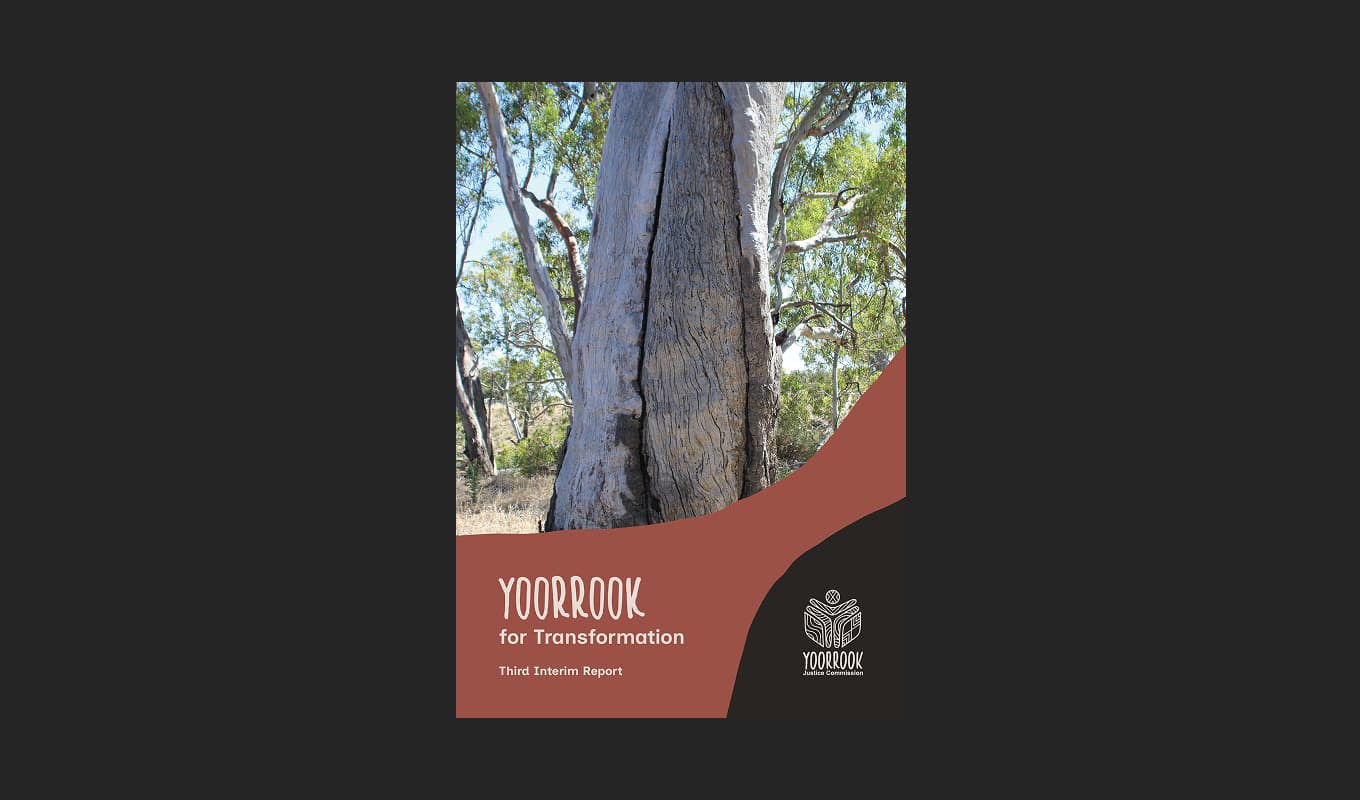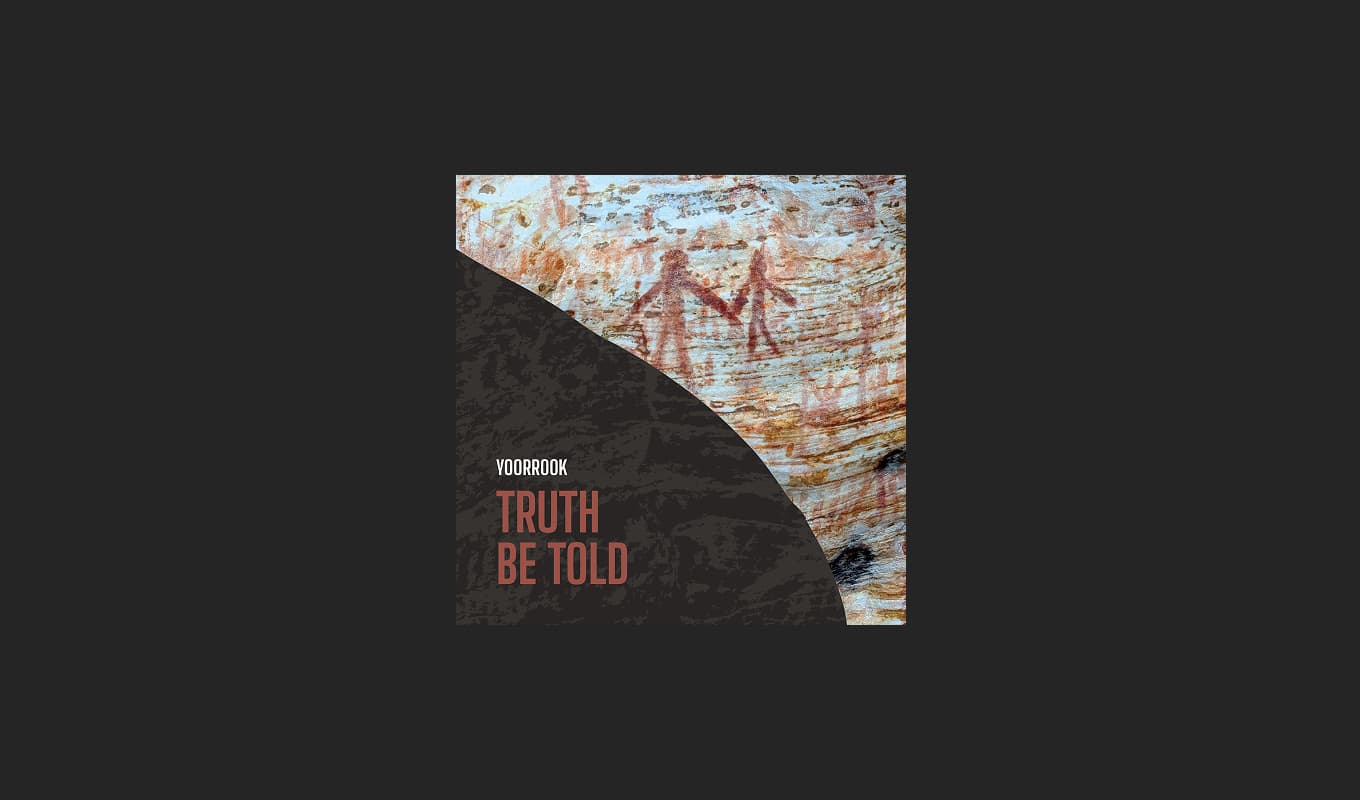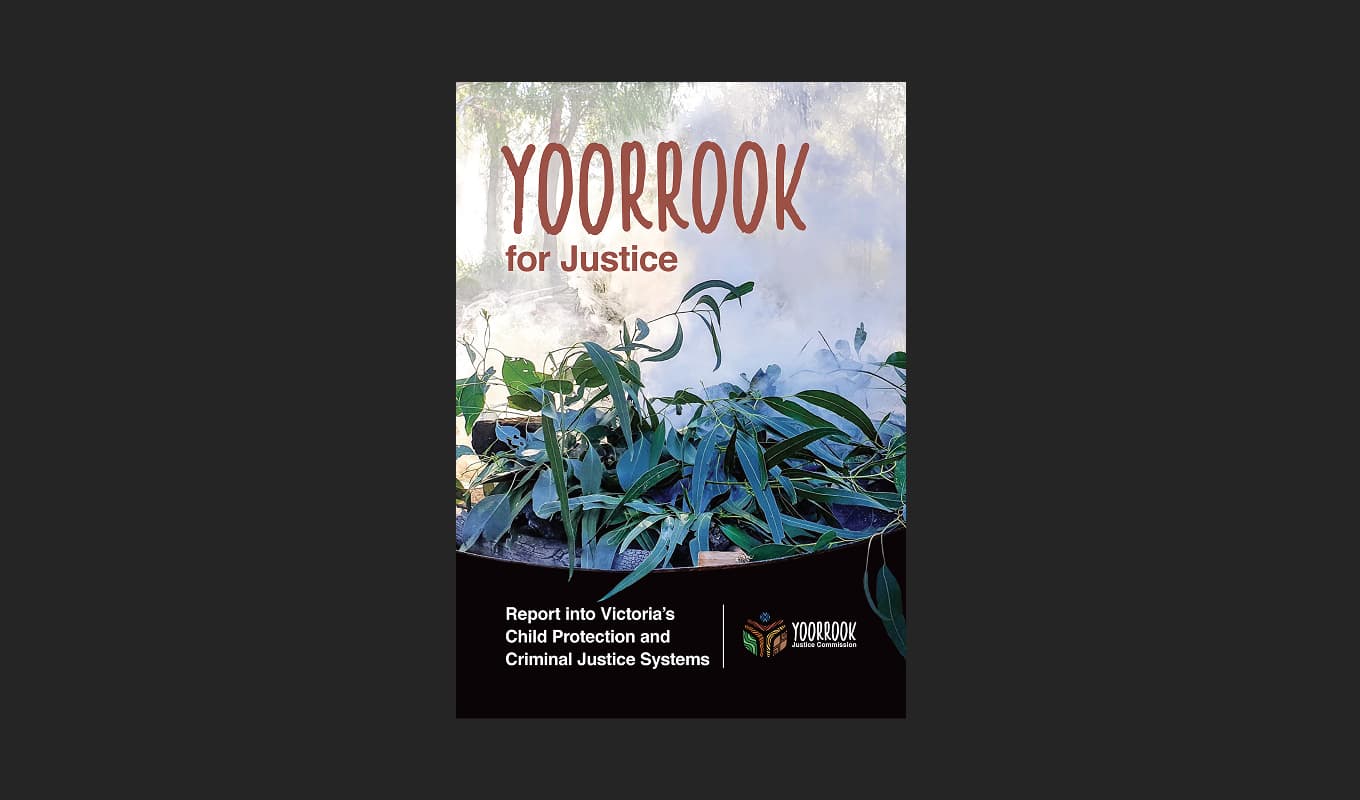Jackie Mansourian
Jackie Mansourian recalls a childhood incident of racism that sparked her curiosity about First Peoples, which was not addressed in her education. She later learned through an Aboriginal Studies elective and placement with the Victorian Aboriginal Legal Service. She believes non-Indigenous Australians need to unlearn fears and assumptions, engage with First Peoples' voices, and hold the government accountable for treaty negotiations.
Submission Transcription
I was nine years old, and was walking along a street in Footscray with my dad, when a car roared past and we heard a man’s voice yell out to my father ‘Go back to your own country you w-g.’ I wasn’t fully aware what was happening. My dad in his anger and shame at being ridiculed publicly in front of his daughter, yelled back in English and his own mother tongue, Armenian, ‘This not your country. This country of Aboriginal people’ or something very close to that. I didn’t know what he meant then. But that incident and his response stayed deep, as do all experiences of racism, especially when a child witnesses and feels their parents being shamed. We had been in Australia for two years. He had witnessed the 1967 Referendum in our first year after arriving. That is how I imagine he would have learnt about First Peoples in Australia.
My father opened my curiosity – who were these people he was referring to? There it stayed, a dormant but open question for many years. Nothing in my primary or secondary school learning in the late 1960’s and 70s helped me understand who these people were that my dad used against racist white Australians as his own shield. Then in 1982, I began my Social Work studies at Monash Uni, and there was an Aboriginal Studies elective. I chose it. Here I would finally learn. I was the only student in my cohort to do it. The course inspired me to do my first short placement with the Victorian Aboriginal Legal Service, under the leadership of Uncle Jim Berg. From then on, there could be no looking away. No not knowing that racism, violence and denial of First Peoples had been the basis to the colonisation in Australia.
I believe that there is genuine good will and openness and commitment to recognise, admit and have relationships based on justice with First Peoples by many non-indigenous Australians. However, I also believe there is deep fear and shame by these many nonindigenous Australians. Fear, not about losing property, or land (as disinformation campaigns have lied about) but fear about saying the wrong things, sounding ignorant, racist, misinformed and misinforming others. What we need to say to one another as non-indigenous people is that it is ok, we have to unlearn in order to learn and listen. There are many, many incredible First Peoples cultural educators, artists, musicians, advocates, Elders, writers, journalists, poets, academics, film-makers, thinkers, activists and more… who teach culture and truth-telling to non-indigenous people with immense generosity. We need to let go of whatever is holding us back (our ego? our embedded racism because we live in such a deep-rooted racist place?) unlearn our fears and assumptions, and then attend, participate, watch, read, listen to the voices of First Peoples of Victoria and across Australia, as they share their stories of cultures. There are so many, many rich and deep opportunities that are created by First Peoples for other First Peoples and for non-indigenous people. I returned back home to Melbourne in 1998, after many years of being away. That is a long time ago now. But one of the things that helped ground me were the sentiments of Aunty Jill Gallagher that I have carried with me in these past 26 years, is to be proud that you are living on the land of the First Peoples of Australia who have the oldest living, continuous culture in the world.
I believe that there is genuine good will and openness and commitment to recognise, admit and have relationships based on justice with First Peoples by many non-indigenous Australians. However, I also believe there is deep fear and shame by these many nonindigenous Australians. Fear, not about losing property, or land (as disinformation campaigns have lied about) but fear about saying the wrong things, sounding ignorant, racist, misinformed and misinforming others. What we need to say to one another as non-indigenous people is that it is ok, we have to unlearn in order to learn and listen. There are many, many incredible First Peoples cultural educators, artists, musicians, advocates, Elders, writers, journalists, poets, academics, film-makers, thinkers, activists and more… who teach culture and truth-telling to non-indigenous people with immense generosity. We need to let go of whatever is holding us back (our ego? our embedded racism because we live in such a deep-rooted racist place?) unlearn our fears and assumptions, and then attend, participate, watch, read, listen to the voices of First Peoples of Victoria and across Australia, as they share their stories of cultures. There are so many, many rich and deep opportunities that are created by First Peoples for other First Peoples and for non-indigenous people. I returned back home to Melbourne in 1998, after many years of being away. That is a long time ago now. But one of the things that helped ground me were the sentiments of Aunty Jill Gallagher that I have carried with me in these past 26 years, is to be proud that you are living on the land of the First Peoples of Australia who have the oldest living, continuous culture in the world.
I believe that there is genuine good will and openness and commitment to recognise, admit and have relationships based on justice with First Peoples by many non-indigenous Australians. However, I also believe there is deep fear and shame by these many nonindigenous Australians. Fear, not about losing property, or land (as disinformation campaigns have lied about) but fear about saying the wrong things, sounding ignorant, racist, misinformed and misinforming others. What we need to say to one another as non-indigenous people is that it is ok, we have to unlearn in order to learn and listen. There are many, many incredible First Peoples cultural educators, artists, musicians, advocates, Elders, writers, journalists, poets, academics, film-makers, thinkers, activists and more… who teach culture and truth-telling to non-indigenous people with immense generosity. We need to let go of whatever is holding us back (our ego? our embedded racism because we live in such a deep-rooted racist place?) unlearn our fears and assumptions, and then attend, participate, watch, read, listen to the voices of First Peoples of Victoria and across Australia, as they share their stories of cultures. There are so many, many rich and deep opportunities that are created by First Peoples for other First Peoples and for non-indigenous people. I returned back home to Melbourne in 1998, after many years of being away. That is a long time ago now. But one of the things that helped ground me were the sentiments of Aunty Jill Gallagher that I have carried with me in these past 26 years, is to be proud that you are living on the land of the First Peoples of Australia who have the oldest living, continuous culture in the world.
Truth-teller consent
Contact us about this submission
Contact us if you’d like to discuss this submission.
Similar submissions
Explore submissions from other witnesses that discuss similar topics.
Viki Sinclair (Fowler)
Viki Sinclair is a direct descendant of one of the original settlers of Gippsland, Colin McLaren. In this submission, she tells her personal story of... more
Prof. Mark G. Brett
Prof. Mark G. Brett's paper, "Reinventing Waste Land as a Colonial Legal Fiction," explores the historical development of the concept of waste land fr... more
Anonymous 1481
The author has a broad understanding of colonisation’s impact on First Peoples but feels Victoria's education system was extremely limited in teaching... more
Denise Cusack Sister of Our Lady of Sion
Denise Cusack, Sister of Our Lady of Sion, found attending some of the Yoorrook Justice Commission public hearings to be a deeply moving experience,... more
Reports and Recommendations
Read the official reports and recommendations of the Yoorrook Justice Commission.

Yoorrook for Transformation
Third Interim Report: A five-volume comprehensive reform report presenting evidence and findings on systemic injustices, and specific recommendations for meaningful change to transform the future.

Truth Be Told
An official public record that documents First Peoples experiences since colonisation, preserves crucial testimonies for future generations and creates an enduring resource for education and understanding.

Recommendations for change
Yoorrook Justice Commission’s recommendations for truth-telling, justice, and systemic reform in Victoria.
